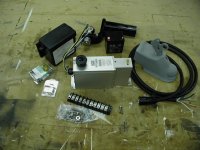Pat Anderson
New member
As often as not when I try to back up anymore, the trailer brakes lock up. Sometimes it happens, sometimes not, no apparent reason, but if there are a lot of people at the ramp, then for sure it is bound to happen! Is there some adjustment to the surge brakes to prevent them from locking up on normal backing up? When they lock up, you have to chock the wheels and pull the surge mechanism out. They locked up multiple times just trying to back into my garage yesterday (after the oil change). We defeated it by putting a 4x4 block in to prevent the surge mechanism from moving back when I was backing up. I guess I will carry that and put it in just before backing down to launch in the future. But it drives me nuts, and if anybody knows how to adjust the surge brake mechanism, I would sure like to hear about it.
I know electric over hydraulic eliminates this issue, but can't do it myself, and I don't have a clue who I would take the trailer to up here for that kind of modification. But if I did, what would the approximate cost of having somebody do it for me, parts and labor atsome reasonable shop rate?
I know electric over hydraulic eliminates this issue, but can't do it myself, and I don't have a clue who I would take the trailer to up here for that kind of modification. But if I did, what would the approximate cost of having somebody do it for me, parts and labor atsome reasonable shop rate?

